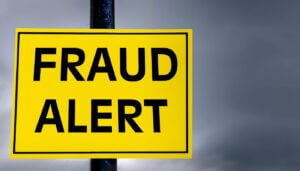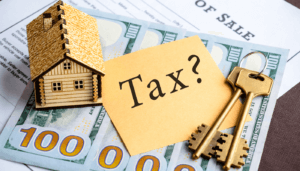With the generous tax benefits available to taxpayers investing capital gains in Opportunity Zones, real estate-focused businesses and investors should consider immediate action. The opportunity for long-term tax benefits combined with potentially significant returns from appreciated real estate appears unparalleled and, if properly structured and managed, could give rise to greater tax savings than traditional real estate gain-deferral techniques.
How to Start Reaping the Benefits?
To realize the benefits, investors might form a closely held Qualified Opportunity Fund (QOF) that invests in a Qualified Opportunity Zone Business (QOZB), which is acquired or established to purchase raw land as its primary Qualified Opportunity Zone Business Property (QOZBP). Unlike other QOZBP, for raw land to meet the QOZBP criteria, it need not meet an original use test or a substantial improvement test but must be used in operating a trade or business.
Thus, a QOZB could acquire raw land with the expectation that it will appreciate over time, and during the time the QOZB operates, the raw land could be used to generate income. Possible QOZB may include real estate development enterprises, agricultural enterprises, leasing operations, or other businesses capable of generating revenue from land with potentially minimal capital improvements. Such opportunities may exist in urban and rural areas designated as Opportunity Zones.
Opportunity Zone Tax Benefits
Taxpayers with realized capital gains from transactions between unrelated parties can defer recognition and taxation of gains by investing in a QOF. Capital gains can be from any source and must generally be invested in a QOF within 180 days of the realization-triggering transaction. Gains reinvested may qualify for the following temporary and permanent opportunity zone tax benefits:
1. 100% of gain deferral until the earlier of an inclusion event or December 31, 2026.
2. possible 10% permanent exclusion of gain held in QOF for more than five years.
3. possible additional 5% permanent exclusion of gain held in QOF for more than seven years.
4. possible 100% permanent exclusion of gain specific to the appreciation of a QOF investment held 10 years or more. Only gains invested in QOF prior to December 31, 2026 are eligible for these tax benefits.
Who Can Invest?
Any entity may invest in a QOF. Pass-through entities can either elect deferral by investing in a QOF directly or pass out any realized gain to the owners for investment in QOF. A closely held QOF can be established and held by one or a few investors. Such an arrangement would permit investors to retain greater control over the use and management of gains and the QOF investment.
How to Invest?
A QOF must hold 90% of its assets in the form of QOZBP either directly or through ownership of a QOZB. A QOZB, in turn, must hold 70% of all tangible property in the form of QOZBP and derive 50% of its gross income from the active trade or business in the QOZ. QOZBP must meet the following tests to qualify: (1) the original use test; (2) the substantially improved test; and (3) held for use in a QOZB’s trade or business. Raw land is exempt from the first two requirements.
Raw land cannot qualify as QOZBP if it is held for investment purposes only, so there must be an active business purpose for holding the land. A variety of possible structures exist for meeting the QOZBP requirement for raw land while still benefiting from the inherent appreciation.
Some examples include a fee-based parking lot, public storage of vehicles or vessels without the need for costly structural improvements, leasing property to another party other than in a triple-net-lease arrangement, or farming the land.
Parking and Storage
A QOF might purchase a well-located piece of raw land in an urban area, for example, and might minimally improve the land for income production purposes. Consider raw land near an event center where parking may be limited and costly. The QOF or QOZB could minimally improve the land by installing base rock or pavement and a small parking toll structure.
Overhead costs and business oversight time could be minimal as the operations and management need not be daily. The revenue generated from this special event-operated parking lot could potentially cover the underlying cost of maintaining the land while meeting the QOZBP criteria.
Similarly, raw land could be acquired for use in a vessel storage facility business, as a recreational vehicle park, or for any other storage-type trade or business that requires minimal management and nominal capital improvements.
Consider also an animal boarding facility or an equestrian operation. Minimal fencing and stable construction could be sufficient to establish a facility for use in an income-producing trade or business without significant capital outlay. Appreciation could continue while revenue is generated through the boarding or training operations.
Leasing
A QOF or QOZB lease to an unrelated party is eligible QOZBP for any “arm’s-length” leases entered into after December 31, 2017. Related-party leases are permissible if certain criteria are met. Triple net leases are not QOZBP, so raw land leases may be QOZBP provided there is adequate owner participation in the operations, and the leases are not triple net.
Consider our examples above involving a parking lot, storage site, or animal boarding facility. If raw land is leased to such a business but does not itself operate the business, as long as the QOF or QOZB retains responsibility for maintaining or making any capital improvements, the lease should be QOZBP.
Farming
Many agricultural areas are designated QOZs. Agricultural businesses might invest gain in a QOF that then purchases raw land used to generate income from producing and selling produce. Alternatively, land might be minimally improved with a warehouse for food storage, a food packaging or sorting facility, or a farm stand for sale of produce. Agriculturally based businesses purchasing raw land through a QOF are poised to benefit from the new Opportunity Zone benefits with potentially minor modifications or expansions to their existing business.
Raw Land for Use in Development
Alternatively, consider an agricultural business wishing to substantially improve a portion of the raw land acquired by a QOF to provide affordable housing for local and migrant workers. The land and improvements would be QOZBP and income-producing through the rental of constructed units.
This scenario could apply to various real estate development projects and businesses. After a number of years, the company might sell the land and the attached structure at a significant gain and yet be exempt from taxation on the appreciation.
Investors operating real estate development-based businesses must be careful because raw land may be inventory if it becomes part of the active trade of developing and selling real estate generating ordinary income, which is not eligible for QOZ tax incentive benefits.
Additional Considerations
Investors must acquire raw land to use it in operating a QOZB. Raw land purchased with the primary intent to realize gain on the appreciation may be disqualified from the Opportunity Zone tax benefits. Careful structuring, documenting, and implementing the use of raw land in operating a QOZB is crucial, and all transactions are subject to potential review under the IRS anti-abuse rule.
Opportunity Zones offer federal tax incentives only. Any gain invested in a QOF faces potential taxation at the state level in the year the gain is generated. For this reason, investors might prefer to defer gain in a §1031 exchange.
Such transactions, however, are limited to real property gain deferrals only. To the extent “boot” would be recognized in a §1031 exchange, or in situations where there is a partial or potentially failed §1031 exchange, investment in a QOF could be a viable alternative.
Opportunity Zone Benefits Conclusion
In many situations, the tax deferral benefits of investing in a QOF to purchase raw land may prove more advantageous than those of a §1031 exchange. A QOF investment allows for temporary and permanent tax deferrals on gains, provides greater investor liquidity since only the gain portion must be reinvested, and permits deferral of taxes on capital gains from non-real estate investments.
Would you like to start taking advantage of the opportunity zone tax benefits? If so, contact us to learn more and get you set up to reap the benefits.










